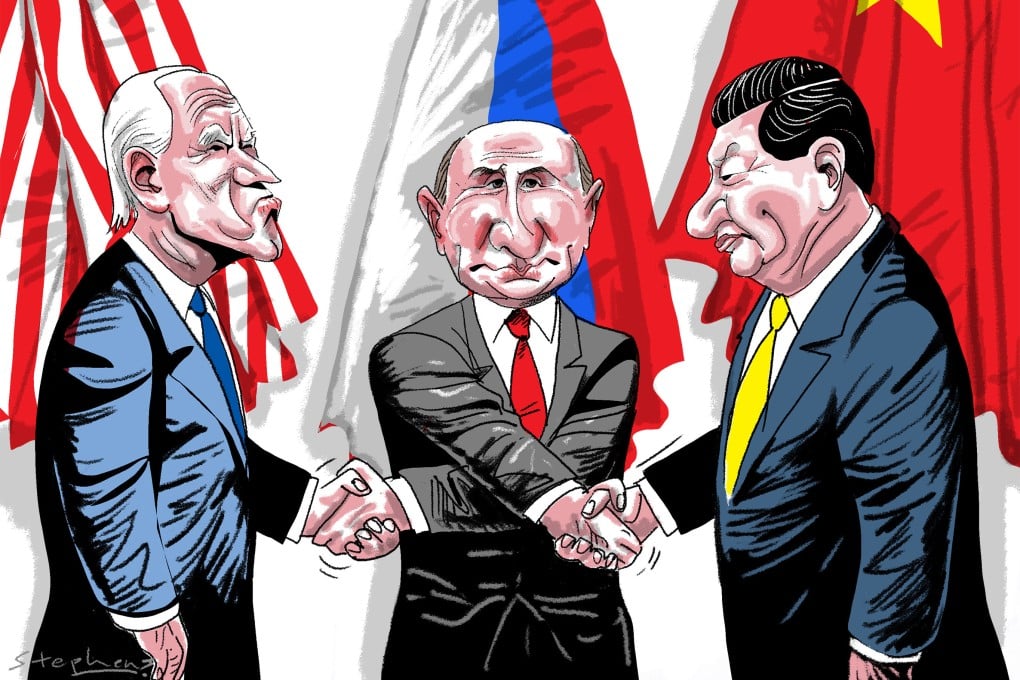Advertisement
Opinion | Why US-Russia reconciliation will be difficult despite warmer relations
- There is ample evidence that Moscow and the West continue to see each other as adversaries and that Russia views China as a valuable partner
- Russia’s growing closeness with China is not equivalent to Moscow becoming Beijing’s junior partner, though, as Russia still has its own goals and priorities
Reading Time:3 minutes
Why you can trust SCMP
2

There has been a flurry of significant developments in the great power triangle of the United States, Russia and China during the past month. On June 16, Russian President Vladimir Putin and US President Joe Biden held a summit in Geneva.
Some observers interpreted Biden’s willingness to meet Putin, whom he had characterised as a “killer” just a few weeks before the summit, as an indication of Washington’s desire to split Russia away from China.
But does Biden actually seek to drive a wedge into the Moscow-Beijing quasi-alliance? That is unlikely. Biden and his team are smart enough to understand Moscow and Beijing will not fall for such divide and conquer tactics.
Advertisement
Rather than engaging in a hopeless exercise of trying to sow rivalry between Moscow and Beijing, the new US strategy is to stabilise relations with Russia so it can focus on countering China.
The success of Washington’s “Russia stabilisation” policy is not guaranteed, but it is possible. For one, Russia seems to have much less appetite for confrontation with the West than was the case in the 2010s.
Advertisement
Advertisement
Select Voice
Choose your listening speed
Get through articles 2x faster
1.25x
250 WPM
Slow
Average
Fast
1.25x

